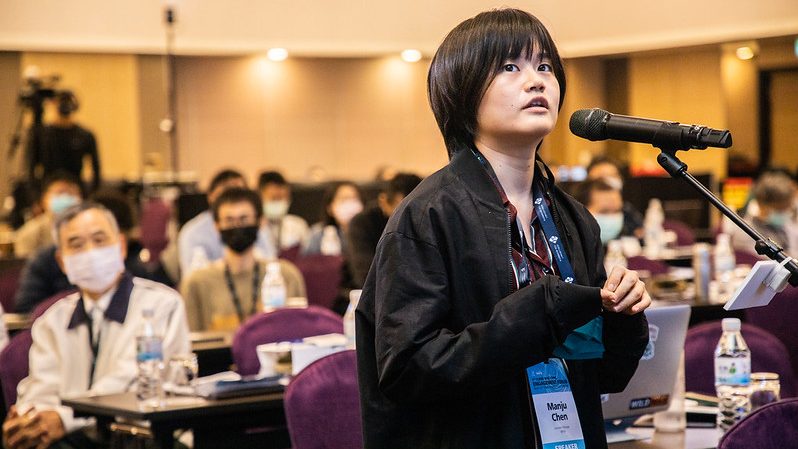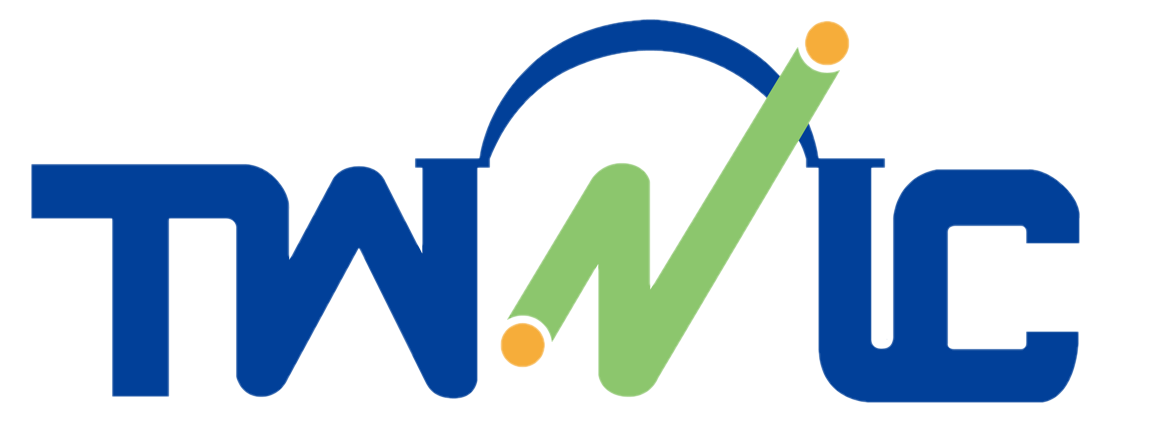| Assistant Manager, National Information Infrastructure Enterprise Promotion Association (NIIEPA) |
| 中文翻譯 |
Continuing my blog on the ICANN APAC-TWNIC Engagement Forum, someone made a counterpoint to my comment about participating in ICANN’s multistakeholder community – I had said as a Forum panelist that becoming a community member is easy, but much more commitment and time are needed to participate meaningfully.
Kenny Huang, TWNIC CEO and a long-time ICANN community member, countered in the session’s Q&A that there is no harm in keeping participation light and easy. He suggested newcomers start with topics that interest them, and encouraged people to look around at other forums such as APNIC, APrIGF, and IETF, whatever attracts them.
I agree that newcomers should be able to have a taste of everything before they decide to sign up for anything serious. I maintain, however, that meaningful participation is critical – not least because it ensures Asia-Pacific (APAC) views are included – and we should therefore strive to deepen our involvement and contribute to the community work. Because the issues are complex, this usually requires a substantial commitment.
Young people, especially those in the APAC region, face tremendous challenges when participating in ICANN for 2 major reasons: the time zone and the language.
English is the working language of ICANN, and it doesn’t help when most people coming from APAC don’t speak English as their native language. Moreover, the benefit of interpretation service is not as prominent for the APAC community because we are such a diverse demography that speaks so many different languages.
On the other hand, the time zone is frequently unfriendly to the APAC participant. I’m not referring to ICANN Meetings which convene in the meeting host’s time zone; I’m talking about working group calls, webinars, and SO/AC/SG/C meetings. This has been a problem for the APAC community: despite repeatedly raising the issue nothing has changed, and we still have to get up in the middle of the night if we want to attend meetings.
Young people are particularly vulnerable to this problem. As young professionals or students, we do not have the flexibility that older community members have over their hours from being retired or senior company executives. In other words, young people do not often have the luxury of coming into work/class late, or even to work at home, because we had a meeting at 3 in the morning.
We won’t be able to fix the time zone problem as long as we don’t have enough people participating in policy work – we need the numbers to ensure that meetings occur at an APAC-friendly time. This will change only when APAC’s representation in the community is predominant enough that our voices carry the same weight as any other region.
I recall as if it was yesterday the feeling of being overwhelmed when I first stepped into the world of ICANN. The ICANN structure is big and confusing, filled with acronyms and jargon. Young faces are not common at the meeting venues. While opportunities from the Fellowship and NextGen programs are great, many of us share the feeling of being lost after our first meeting, not knowing where and how to continue. One group I participate in, Youth4IG, is helping to create a network for the youth community in APAC to connect and help each other out, making sure that we are not alone. We need more young people to participate in ICANN, and I hope you can become one of us.
如何成為ICANN利害關係人的一份子:我們需要更多(年輕)人
延續我前一篇對第二次ICANN APAC- TWNIC合作交流論壇的部落格文章,以及對我參與ICANN的多方利害關係人社群的意見提出不同論點-身為講者之一,我認為成為社群的一份子很簡單,但更需要承諾及時間餘裕才能達成持續、深度且有意義的參與。
TWNIC董事暨執行長黃勝雄,同時也長期參與ICANN社群,在本場次的問答時間對我的論點提出不同的意見,認為參與也可以是輕鬆且簡易的。他建議新加入者可以從有興趣的議題開始,並鼓勵大家參與APNIC、APrIGF與IETF其它可以吸引參與興趣的論壇。
我同意新加入者應該先瞭解全貌後再選擇想要投入的領域。但我仍堅持有意義的參與才是重要的-這不僅是確保亞太地區的觀點能被納入-我們應該循序深化我們對社群工作的參與及貢獻。因為議題相當複查,這通常需要投入大量的承諾。
年輕人,特別是亞太地區的參與者在參與ICANN會議時常面臨2個巨大的挑戰:時區及語言。
英文是ICANN的工作語言,當大部分亞太地區的民眾未使用英文作為母語時這並沒有助益。更甚之,翻譯服務所帶來的優點對地理分歧而產生許多不同種類語言的亞太地區社群並沒有太多優勢。
此外,時區對亞太地區的參與者並不友善。我並不是指各場次ICANN會議主辦地的時區;而是指工作小組的電話會議、線上研討會及支援組織/諮詢委員會/利害關係人團體/選舉人團會議(SO/AC/SG/C)。這對亞太地區的社群來說是個問題,即使持續提出這個議題,問題仍未改變,我們想參與會議的話,仍然需要在半夜起床。
年輕人面對這個問題時特別脆弱。年輕的專家或學生並沒有如同資深社群成員般的時間彈性,他們可能已經退休或身為公司的資深管理階層。換句話說,年輕人沒有因為清晨三點開會就有遲到早退的餘裕,更別提居家工作。
只要沒有足夠的人參與政策制定工作,我們就沒辦法解決前述時區差異的問題-我們需要人數來確保會議能在亞太地區友善的時間舉行。只有當亞太地區在社群的代表人數有足夠優勢,可以讓我們的聲量與其他地區平起平坐時才能改變。
當我踏入ICANN世界時所受到的震撼如同昨日一般鮮明。ICANN的結構巨大而令人混淆,充滿縮寫與專業術語。年輕臉龐在會場中相當少見。即使有英才計畫及下世代計畫提供的良好機會,我們許多人仍在參與完第一場會議後感到失落,不知從何或如何繼續下去。我參與的Youth4IG團體正在協助創造一個讓亞太地區年輕社群成員能相互連結與互助的網路,確保我們不是孤單的。我們需要更多年輕人參與ICANN,也希望您能成為我們的一份子。

